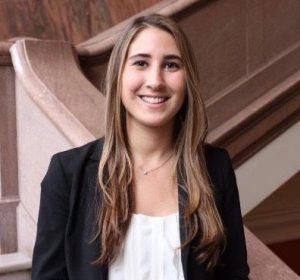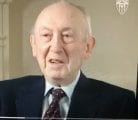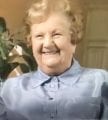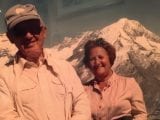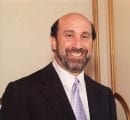For Decendant Submission, Select Remembrance Above by Arielle
EDITOR’S NOTE:
The following personal essay, by Arielle Herzberg, is in remembrance of her grandfather, Arno Herzberg, known to her as “Poopy.” Arielle originally submitted this essay as part of her law school application.
Remembrance of Arno Herzberg, Grandfather
I was seven years old the first time I learned about my grandfather's nightmares. It was a Friday night and I was sleeping over at my grandparents’ house when I woke up in the middle of the night to the sound of his screaming. As a young girl, I did not understand. In total possession of himself by day, my grandfather’s commanding aura dissipated in the night.
The nightmares came, in a way, because of his experience with the law. My grandfather was a judge in Berlin in the early 1930s when Hitler rose to power. He was thrown off the bench almost immediately, when the law he was charged to uphold was ironically turned against him. Later, his family – his mother, his father, many of his cousins – were murdered in concentration camps. Although he was able to escape, he carried with him the burden of his loss until he died. It was this story, the source of both my grandfather’s strength and sadness, which first kindled my interest in the Holocaust.
As I got older, however, this interest evolved from a personal to an intellectual and academic one. The quest to understand my grandfather’s nightmares kindled within me a curiosity to learn about the past, and I pursued this passion as I set out to study history in college. I learned to love the subject of history, not just the study of the Holocaust, and I decided in the beginning of my college career that I would further my studies by studying abroad and writing an honors thesis. But academic work alone seemed to have something missing from it: I studied the past, but I was incapable of changing it.
As a sophomore, however, I learned about an opportunity to deploy my knowledge in a different way. Through the Lipper Internship Program at the Museum of Jewish Heritage, I taught Holocaust history in public schools in Philadelphia and travelled with my students to New York City to lead them on tours of the museum. When I entered the program, I had a distinct vision in my mind: after teaching the history, with the background of my personal and academic experiences, I’d merely await the students to naturally sympathize with the human side of the history, ask questions, and genuinely discuss its implications. I soon realized, however, that the experience would prove quite different than my original expectation. I stepped into my first school through a metal detector. I was escorted through the hallway by police officers. While I initially thought I would teach something that was so familiar to me but foreign to my students, I realized I was doing the opposite: learning about a world so familiar to my students and so foreign to me.
Some of my experiences teaching students over those four months made me feel like I achieved my goal. In one class my students read me heartfelt poems about how learning about the Holocaust made them want to end discrimination. At the museum my students pointed to pictures of children their age and asked me about their personal stories. But over the course of my internship, there were also times when I stood in front of a classroom of students who would not give me any attention. There were times when students laughed at the pictures in the museum. While reflecting on my varied experiences as a Lipper intern, however, I realized that I was not so different from the students I was teaching. Perhaps their laughter and inattention did not mean that they did not understand. Perhaps they were, much like myself, simply baffled about what they could do to change the past.
Furthermore, maybe my students were caught up in a world that, like my grandfather’s, often seemed lawless and immoral. My grandfather, until his death, never believed in the American judicial system because he had seen the German system turn on him. I thought about one student who told me that he desperately wanted to learn more history but he would never be able to do so in college. His older brother had gone to jail and after he graduated high school, he needed to support his handicapped mother and three siblings. Perhaps my students, who saw few opportunities for their futures and experienced their own nightmares, shared with my grandfather a disbelief in change.
But instead of sharing their skepticism about potential change, my students and my grandfather instilled in me a passion to achieve change and, more importantly, to think about which changes were the right ones. I realized my study and teaching of history was not futile, but I needed not just to learn about the past, but to learn from the past. I decided – for my grandfather, my students, and myself – that I would work for a just society in the present. In my time in law school, I hope to figure out how to achieve this goal. I am not yet sure whether my legal passion will take shape in public service, nonprofit work, or in family law, but I do know that whatever I do, I will engage in it fully.
Lorem ipsum dolor sit amet, consectetur adipiscing elit. Fusce condimentum lacus purus, et suscipit justo semper nec. Maecenas non lectus odio. Aliquam volutpat neque ac placerat gravida. Nullam sit amet venenatis ante. Proin vestibulum volutpat purus vel dapibus.
